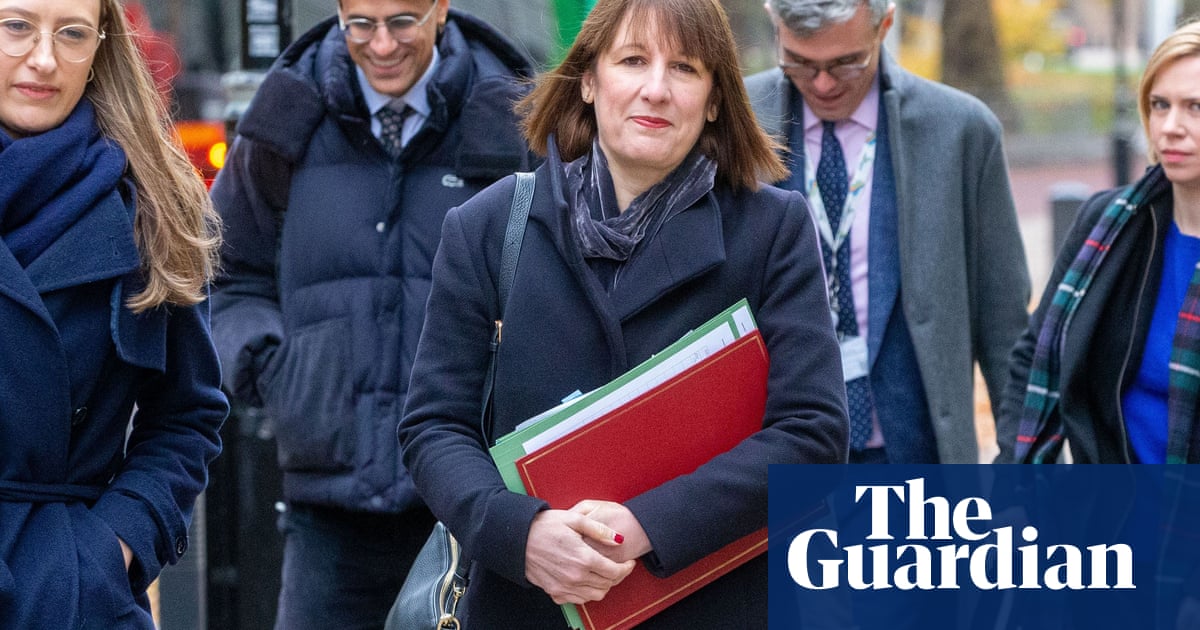A defiant Rachel Reeves will rebuke critics of her tax-raising budget on Monday, telling disgruntled business leaders that they have offered “no alternatives” to her plans.
Since Labour’s first budget in 14 years last month, business groups have warned that the chancellor’s £25bn increase in employer national insurance contributions (NICs) will force them to cut jobs and raise prices. Thousands of farmers have also protested against changes to inheritance tax.
But Reeves will tell the Confederation of British Industry (CBI) annual conference in Westminster that no one has offered a better solution to the challenging situation left behind by the previous, Conservative government.
“I have heard lots of responses to the government’s first budget but I have heard no alternatives,” she is expected to say. “We have asked businesses and the wealthiest to contribute more. I know those choices will have an impact. But I stand by those choices as the right choices for our country: investment to fix the NHS and rebuild Britain, while ensuring working people don’t face higher taxes in their payslips.”
The chancellor’s budget on 30 October included £40bn of tax rises to boost public spending. Increases to employer NICs were the biggest revenue-raiser for the Treasury.
Coming alongside a significant uplift in the minimum wage in April, businesses in some industries, including hospitality and retail, have said they will struggle to absorb the extra NIC costs.
The CBI’s director-general, Rain Newton-Smith, will use her speech at the gathering to welcome Reeves’s moves to stabilise the public finances, but also accuse her of jeopardising economic growth by taxing firms more heavily.
“When you hit profits, you hit competitiveness, you hit investment, you hit growth,” Newton-Smith is expected to say. “Almost two-thirds of firms told us this budget will damage UK investment.”
Underlining corporate frustration at the unexpected tax raid, she will say: “Tax rises like this must never again be simply done to business. That’s the road to unintended consequences.”
Newton-Smith will urge the government to press ahead with business rates reform, to ease the pressure on struggling firms, and call for tax breaks for occupational health to help support workers with health conditions to stay in a job.
Reeves’s insistence that naysayers have offered “no alternative” to her plans will inevitably spark comparisons with Margaret Thatcher’s defence of her tough economic policies. The prime minister told the Conservative Women’s Conference in 1980: “I believe people accept there’s no real alternative.”
As a result of her fondness for the phrase, Thatcher’s cabinet critics nicknamed her Tina, an acronym of “There is no alternative.”
Labour promised during this year’s general election campaign not to increase the major personal taxes, which are national insurance, income tax and VAT.
After the party’s landslide victory, Reeves claimed that she had been left with a £22bn “black hole” in the public finances, and would need to take action to prevent borrowing running out of control.
“We had to clear up the mess of what we had been left,” Reeves will tell the CBI. “The easiest thing I could have done is to have dodged the difficult choices. Put short-term interests before the national interest. I was not willing to do that.”
after newsletter promotion
She will insist that Labour has no intention of making tax increases on the same scale in future years, however, saying: “I do not plan to have another budget like this. I have wiped the slate clean.”
Reeves will also point to some of Labour’s plans for pro-growth policies, which she says she wants to work alongside business to deliver, including the Back to Work white paper, due later this week.
Last week’s official growth figures showed the economy expanded by just 0.1% in the third quarter, with some business groups, including the CBI, blaming pre-budget uncertainty for the marked slowdown.
Reeves will repeat that she was “not satisfied” with those growth figures, the same line used by Keir Starmer when he responded to the data last week at the G20 summit in Rio.
Financial markets have also downgraded their expectations of interest rate cuts from the Bank of England since the budget, putting upward pressure on mortgage rates, though on a much smaller scale than the dramatic jump after Liz Truss’s mini-budget.
The shadow chancellor, Mel Stride, has blamed Reeves’s budget for endangering the outlook for the economy, claiming: “Labour’s national insurance jobs tax will make it more expensive for businesses, which will then fuel higher prices, higher inflation, higher mortgage costs and slower growth.”
The chancellor’s serious tone on Monday will be in contrast to Boris Johnson’s speech at the same conference three years ago, when he delivered a rambling address on the merits of children’s theme park Peppa Pig World.
“Peppa Pig World is very much my kind of place. It has very safe streets, discipline in schools, heavy emphasis on new mass transit systems,” Johnson told his baffled audience. At one point he also imitated the sound of an accelerating car.
Reeves’s speech at the CBI event comes as the business organisation tries to rehabilitate its public image following the Guardian’s revelations about sexual misconduct at the lobbying group, which its president has described as “an appalling shock” that tipped it into a “near-death experience”.

